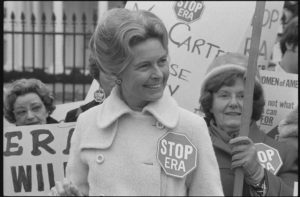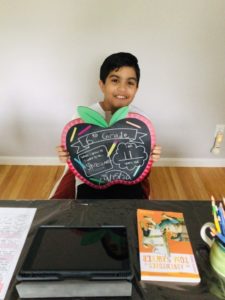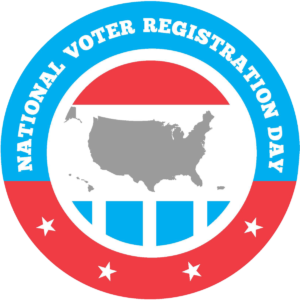Nuance, Complexity, and Ambiguity
History often teaches us to embrace ambiguity, to understand there aren’t simple answers to complex questions, and Americans tend to like simple answers to complex questions. So the challenge is to use history to help the public feel comfortable with nuance and complexity.
Lonnie Bunch, Secretary of the Smithsonian Institution, New York Times interview
As we have been moving out of the Industrial Age and into the Digital Age over the last few decades, both our educational system and our society has placed more and more emphasis on STEM fields (Science, Technology, Engineering, and Medicine). By their nature, these fields seek and require black and white answers to our questions, and as computers rule more aspects of our daily lives, the very underpinning of our culture keeps moving towards being governed by a binary system of ones and zeroes.
This STEM emphasis, however, has often come at the expense of “softer” fields like the humanities, arts, and social sciences, which often require zeroes, ones, and twos (if not threes, fours and fives).
As we have progressively transformed our life and culture into digital surrogates and have pursued mastery over nature and our environment through science, I ask: have we been losing our ability to ask complex questions, to hold several answers to the same question in our minds at the same time, to see the world through multiple lenses, and to compromise when situations require it?
One or two humanities classes in a liberal arts curriculum is not enough to develop the complex skills needed to perform these feats of mental and social dexterity, so the hope is that we continue to pursue them in our adult lives. It is difficult if not impossible to pursue these ends by ourselves, so our society has created cultural institutions, such as libraries and museums, to help us out.
As both a librarian and a cultural historian, part of my role, as Lonnie Bunch indicates above, is to help people become comfortable with nuance, complexity, and ambiguity. Below are some suggested activities to help you exercise some of your cultural muscles and think about the world in new and exciting ways.
–Anthony Vaver, Local History Librarian
* * *
View First Day of School Photos Submitted to the Westborough Archive – The WPL’s Kids’ Department and the Westborough Center has teamed up to collect First Day of School Photos during the start of this unusual school year, and many are available now in the Westborough Digital Repository. There is still time to submit your child’s photo and tell us about your experiences on this important day.
* * *
I don’t need to tell you that the season of politics is upon us. Even though many colleges and universities have “Political Science” programs, politics in the end is more of an art than a science—the 2016 surprise election certainly taught us that! No politician is going to make all of your views about how our government should be run happen, as much as that person may try to convince you otherwise or use media outlets to try to bring you into a single line of thinking. The art of politics comes in when trying to decide which politician represents your interests more, but can still get elected through building a coalition of other people with views different from your own. Ask for and expect too much, and you may end up with nothing. In many ways, the current gridlock in the federal government comes from expectations and promises that we should be unsatisfied with not getting everything we want.
The time to make your artful decision is near. The Westborough Center is partnering with the Westborough Town Clerk to celebrate National Voter Registration Day on Tuesday, Sept. 22 and to encourage all U.S. citizens to vote. Make sure you can enact your civic responsibility: Register to Vote (or Confirm Your Voter Registration). Registering takes only a few minutes to complete, so do it today!
Suggested reading:
- The Prince, by Niccolò Machiavelli.
- Love Your Enemies: How Decent People Can Save America from Our Culture of Contempt, by Arthur C. Brooks.
- The Common Good, by Robert B. Reich.
- The Parties Versus the People: How to Turn Republicans and Democrats into Americans, by Mickey Edwards.
- How Change Happens, by Cass R. Sunstein.
- American Character: A History of the Epic Struggle between Individual Liberty and the Common Good, by Colin Woodard.
* * *

On Tuesday, the Westborough Center and the Westborough Historical Society co-sponsored a talk by Barbara Berenson on “Women’s Rights after the 19th Amendment,” and you can view it now on Westborough TV. People who attended the talk agree that it was entertaining and informative—and as an added bonus, if you stay until the end you can see Kris Allen in her Woman’s Suffrage outfit ask a question!
Berenson is author of Massachusetts in the Woman Suffrage Movement. Her talk discusses how women fared politically and legally once they finally won access to the ballot and connects the passage of the 19th Amendment to the struggles to pass the Equal Rights Amendment, which was first proposed in the 1920’s.

